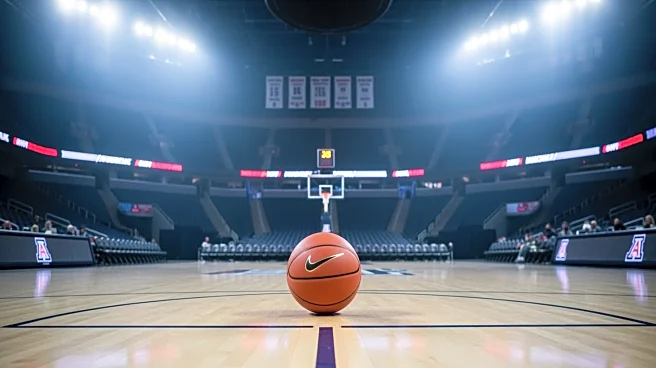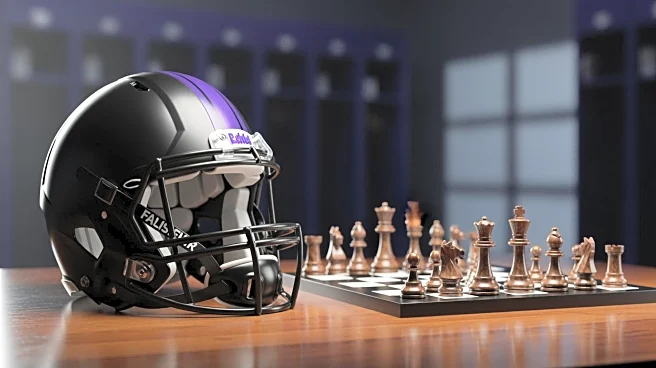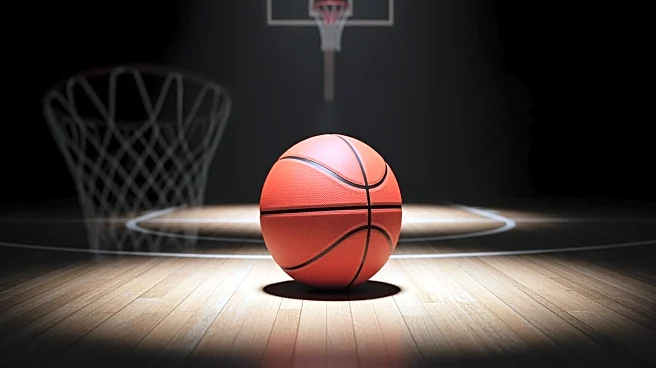What's Happening?
Bryce James, the youngest son of NBA legend LeBron James, did not participate in his first collegiate basketball game as the University of Arizona defeated the University of Florida. Despite the Wildcats' significant victory over the defending champions,
James remained on the bench. His absence from the game was not unexpected, given his status as a 3-star prospect ranked 324th nationally by 247Sports. Unlike his brother Bronny, who was a 5-star recruit, Bryce James has yet to secure a spot in Arizona's rotation. The Wildcats' head coach, Tommy Lloyd, opted for a limited rotation, using only eight players in the game against Florida. James' performance in exhibition games did not earn him playing time, but he is expected to see action in upcoming games against less competitive teams.
Why It's Important?
Bryce James' journey in collegiate basketball is closely watched due to his family's high-profile sports legacy. His development and eventual integration into the team could impact his future career prospects and the dynamics of the Arizona Wildcats. The decision to bench him highlights the competitive nature of college basketball, where even players with notable family backgrounds must prove themselves. This situation underscores the challenges faced by young athletes in high-pressure environments and the importance of performance over pedigree. For Arizona, managing player development while maintaining competitive performance is crucial for their season's success.
What's Next?
Bryce James is likely to gain playing time in upcoming 'buy games' scheduled for November and December, where Arizona is expected to face less formidable opponents. These games will provide him with opportunities to showcase his skills and potentially earn a more significant role in the team's rotation. The coaching staff will be monitoring his progress closely, and his performance in these games could determine his future contributions to the team. As the season progresses, James' development will be a point of interest for both fans and analysts, particularly in how he adapts to the collegiate level of play.















